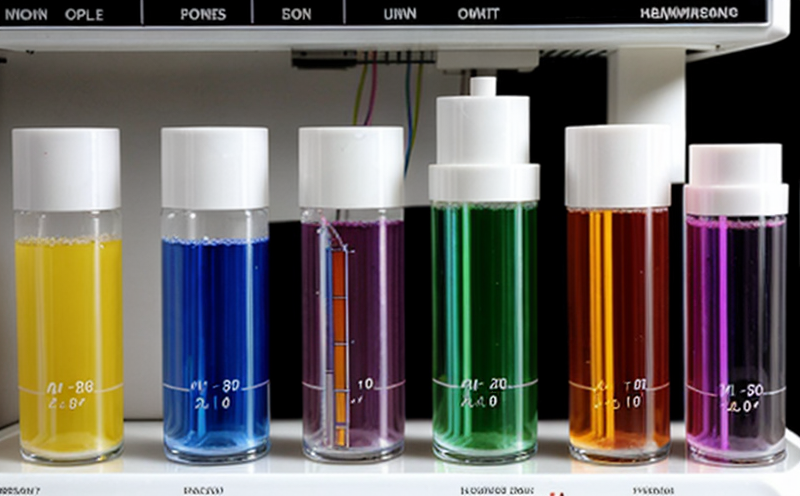USP 1225 Validation of Chromatographic Testing Methods
The United States Pharmacopeia (USP) Chapter 1225 outlines the validation requirements for chromatographic testing methods. This method ensures that analytical procedures are accurate, precise, and robust enough to meet critical quality standards in pharmaceutical development and manufacturing.
Chromatography plays a crucial role in identifying, quantifying, and characterizing compounds within complex mixtures. USP 1225 validates these methods through a series of experiments that demonstrate the method's suitability for its intended purpose. This ensures consistency across different batches and facilities, enhancing product quality.
The validation process involves several key steps:
- Method Development
- Optimization
- Calibration
- Linearity Assessment
- Detection Limits
- Precision Studies
- Accuracy Studies
- Robustness Testing
The USP 1225 validation process is essential for pharmaceutical companies to comply with regulatory requirements. It ensures that the analytical methods used are reliable and reproducible, which is critical in ensuring product safety and efficacy.
| Stage | Description |
|---|---|
| Method Development | Determining the chromatographic conditions that will be used in the method. |
| Optimization | Tuning the chromatography to achieve optimal separation and resolution of components. |
| Calibration | Ensuring that the calibration curve is linear over the concentration range of interest. |
| Linearity Assessment | Evaluating the linearity of the method over a specified concentration range. |
| Detection Limits | Determining the lowest concentration that can be reliably detected by the method. |
| Precision Studies | Assessing the variability of replicate measurements under defined conditions. |
| Accuracy Studies | Evaluating how closely the measured values agree with the true value. |
| Robustness Testing | Assessing the method's ability to withstand minor changes in operating conditions without affecting performance. |
Benefits
- Ensures compliance with USP standards
- Achieves accurate and reliable analytical results
- Reduces the risk of method failure during routine use
- Maintains product consistency across batches
- Safeguards patient safety by ensuring product quality
- Supports regulatory compliance and audit readiness
Industry Applications
The USP 1225 validation of chromatographic testing methods is particularly important in the pharmaceutical industry, where product quality directly impacts patient health. Here are some key applications:
- Pharmaceutical development and manufacturing
- Quality control for active pharmaceutical ingredients (APIs)
- Bioanalytical methods for drug metabolism studies
- Release testing of dosage forms
- Determining purity levels in excipients
Why Choose This Test?
The USP 1225 validation ensures that chromatographic methods are robust and reliable, which is critical for the pharmaceutical industry. Here’s why you should choose this test:
- It guarantees compliance with international standards.
- It enhances product quality and patient safety.
- It supports regulatory compliance and audit readiness.
- It ensures consistent results across different batches and facilities.
- It minimizes the risk of method failure during routine use.
- It provides a robust foundation for method optimization and improvement.





